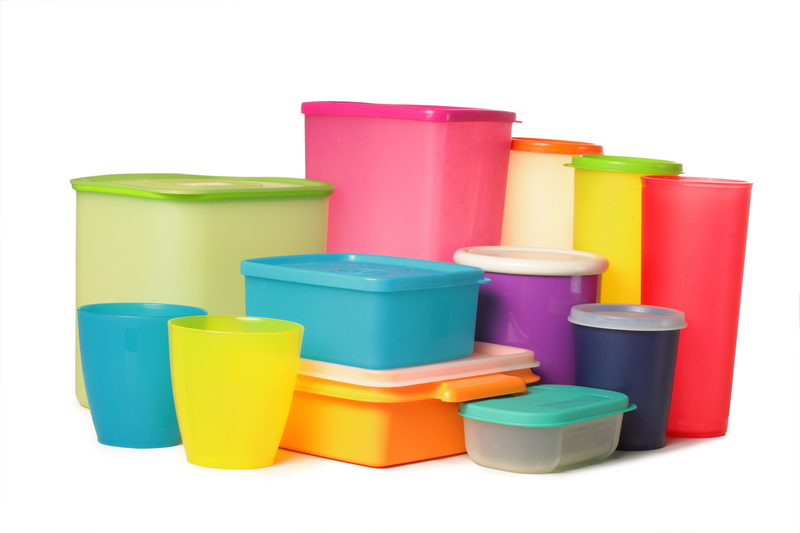Redefining Garbage: Turn Unwanted Goods into Valuable Assets
In the modern world, we are all producers and managers of waste. Our consumer-driven lifestyles have led to escalating amounts of trash piling up in landfills, polluting the environment and costing us valuable resources. But what if we could turn the tables? What if garbage could be redefined as a treasure chest of valuable assets? Welcome to a fresh perspective on waste management: Redefining Garbage--Turn Unwanted Goods into Valuable Assets.
Understanding the Concept: Beyond Traditional Waste
Most people view unwanted items as nothing more than trash, destined for landfill or incineration. However, there is enormous potential to repurpose, recycle, or upcycle these items, reducing our ecological footprint and even unlocking new revenue streams. This comprehensive article explores the transformative journey from garbage to gold, providing actionable insights and ideas to help you redefine how you handle unwanted goods.
The Environmental Toll of Throwaway Culture
- Landfill Overload: In the United States alone, nearly 300 million tons of trash are produced each year. Landfilling this waste generates methane, a potent greenhouse gas.
- Depleting Resources: Throwing away products means losing the resources, energy, and labor invested in their creation.
- Pollution Crisis: Plastics and hazardous materials leach into soil and waterways, impacting ecosystems and human health.
To transform garbage into valuable assets, we need to think differently about waste. This means seeing unwanted goods not as refuse but as raw materials ripe for reintegration into the economy.

The Circular Economy: A Model for Turning Trash into Treasure
The circular economy is a pioneering framework designed to keep materials in use for as long as possible. Rather than following the traditional 'take-make-dispose' model, the circular economy emphasizes designing out waste and regenerating natural systems.
- Reuse: Extend the life of products through repair, donation, and resale.
- Recycle: Break down unwanted goods into their raw components for manufacturing new products.
- Upcycle: Transform trash into items of higher value or quality.
Adopting a circular approach enables households, businesses, and communities to redefine garbage as a source of opportunity, not just a disposal problem.
Simple Steps to Start Redefining Garbage at Home
Changing how we manage waste starts with personal behavior. Here are practical steps to turn your unwanted goods into valuable assets:
- Sort and Separate: Designate bins for recycling, compost, donations, and creative projects.
- Educate Yourself: Learn which items your local facilities accept and how to prepare them for collection or drop-off.
- Repurpose Creatively: Use glass jars for storage, old clothing for cleaning rags, or wooden pallets for furniture projects.
By rethinking what we throw away, we can save money, reduce clutter, and contribute positively to the environment.
Redefining Garbage: Innovative Ways to Add Value
There are countless creative and entrepreneurial opportunities to transform trash into treasure. Let's explore some of the most effective and innovative strategies being used today.
1. Upcycling and Creative Reuse
Upcycling goes a step beyond recycling by converting waste materials into new products that are often better in quality or value than the original.
- Furniture from Pallets: Discarded wood pallets can be turned into stylish coffee tables, shelves, or outdoor furniture.
- Fashion from Fabrics: Old clothing and textiles can be cut, sewn, and dyed to create new apparel or accessories.
- Art from Junk: Artists are increasingly using metal scraps, plastic bottles, and everyday trash to create thought-provoking installations.
The possibilities are limited only by your imagination. By creatively reusing unwanted goods, you can redefine garbage as a source of materials for art, business, and innovation.
2. Composting: Turning Organic Waste into Green Gold
A significant portion of household waste is organic--food scraps, coffee grounds, yard trimmings. Composting transforms these into valuable nutrients for gardens and farms.
- Backyard Composting: Set up a compost bin to turn kitchen and garden waste into rich soil for your plants.
- Community Initiatives: Many cities and towns offer compost drop-offs or curbside collection for organic materials.
- Vermicomposting: Use worms to accelerate the breakdown of organic matter for faster, more potent compost.
By composting, you not only turn waste into valuable assets but also help reduce landfill overuse and support a healthier ecosystem.
3. E-Waste Recycling: Extracting Value from Old Electronics
Electronic waste, or e-waste, is one of the fastest-growing waste streams globally. But inside those old gadgets are metals, circuits, and components that can be recovered and repurposed.
- Precious Metals Recovery: Gold, silver, copper, and palladium can be extracted from circuit boards.
- Component Harvesting: Usable parts like batteries, microchips, and screens can be refurbished or resold.
- Donation and Refurbishing: Old computers and phones can be donated to schools or non-profits, extending their useful life.
Recycling electronics not only keeps toxic substances out of the environment but also reintroduces valuable materials into the supply chain. This is a prime example of redefining waste as a resource.
4. Selling and Donating Unwanted Goods
One person's trash is another's treasure. What you no longer need might be just what someone else is looking for. Consider these high-impact methods for redefining your garbage while supporting the community:
- Online Marketplaces: Sell items through platforms like eBay, Facebook Marketplace, or Craigslist.
- Garage Sales: Host a sale to move multiple items quickly and meet neighbors in the process.
- Charities and Shelters: Donate gently used clothing, furniture, or appliances to local organizations.
You not only divert goods from landfills but also give them a new purpose, helping others and even earning extra income in the process.
5. Industrial Symbiosis: Turning Corporate Waste into Valuable Inputs
Businesses generate significant waste, but through a process called industrial symbiosis, companies can exchange by-products and waste materials with others who can use them as raw materials.
- Energy from Waste: Food processing plants may send organic waste to local bioenergy producers.
- Materials Exchange: Manufacturing offcuts, scrap, and chemicals can find new life in other industries.
- Corporate Reuse Networks: Platforms connect organizations to facilitate resource sharing and reduce overall waste.
Adopting these practices on a wider scale can dramatically reduce environmental impact and create new streams of business value.
Global Success Stories: Inspiring Examples of Reimagining Trash
Around the world, forward-thinking individuals and organizations are leading the way in redefining garbage and transforming unwanted goods into real assets.
Case Study 1: Sweden--A Zero-Waste Champion
Sweden recycles nearly 99% of its household waste, using advanced separation, recycling, and incineration methods. Remarkably, the country imports trash from other nations to keep its waste-to-energy plants running--turning garbage into electricity and heat.
Case Study 2: TerraCycle--Recycling the "Unrecyclable"
TerraCycle is a global leader in hard-to-recycle waste solutions. They partner with brands and consumers to collect and repurpose everything from cigarette butts to snack wrappers, showcasing the huge potential of turning garbage into valuable materials.
Case Study 3: Social Enterprises and Artisan Collectives
From Africa to Asia, local communities collect waste materials like plastic bags, bottles, and tires, which are then crafted into bags, footwear, and even home decor. These projects provide jobs, clean the environment, and create desirable goods for new markets.
Tips for Businesses: Turning Commercial Waste into Assets
Forward-looking companies can significantly reduce costs and environmental impact by embracing waste valorization. Here are actionable tips:
- Audit Your Waste: Identify all waste streams, including packaging, off-cuts, and by-products.
- Engage in Waste Exchanges: Join industry platforms where firms trade waste materials as raw inputs.
- Innovate Product Design: Develop products that are easier to repair, upgrade, or recycle.
- Promote Take-Back Programs: Encourage customers to return used goods for refurbishment or material recovery.
- Support Zero-Waste Initiatives: Aim for closed-loop systems where nothing goes to landfill.
Challenges and How to Overcome Them
Despite the benefits of redefining garbage and transforming waste into valuable resources, there are hurdles to overcome:
- Lack of Awareness: Many people and companies simply don't realize how much value is hidden in their waste.
- Limited Infrastructure: Not all regions have recycling or reuse facilities.
- Economic Barriers: Sometimes, recycling and upcycling can be more expensive than sending items to landfill.
By educating stakeholders, investing in modern waste management systems, and supporting innovative business models, these challenges can be turned into opportunities for environmental and economic gains.

The Future: Smart Technologies and a Waste-Free Society
Exciting new technologies are making it easier to turn unwanted goods into valuable assets:
- AI and Robotics: Automated sorting systems can separate recyclables faster and with greater precision.
- Material Innovation: Biodegradable plastics and modular components allow products to be easily reused or recycled.
- Blockchain Solutions: Digital tracking of materials ensures transparency and accountability in recycling supply chains.
With continued innovation and public engagement, it is possible to envision a society where the term "waste" becomes obsolete--because everything is viewed through the lens of resource and value.
Conclusion: Embrace the Garbage Revolution
Redefining garbage isn't just an environmental trend; it's an economic, social, and ethical imperative. By seeing unwanted goods as resources rather than refuse, we can create a cleaner planet, boost local economies, unleash creativity, and foster a culture of sustainability.
- Start today: Rethink your household or business waste.
- Get creative and collaborate: Join local recycling or upcycling groups and share ideas.
- Support circular economy initiatives: Choose brands and services that promote responsible resource use.
The movement to turn unwanted goods into valuable assets is gaining momentum worldwide. Whether repurposing, recycling, selling, or innovating, every action counts. It's time to redefine what garbage means and unlock the hidden treasure in our trash!
